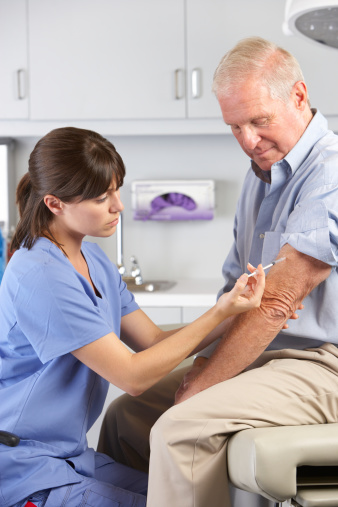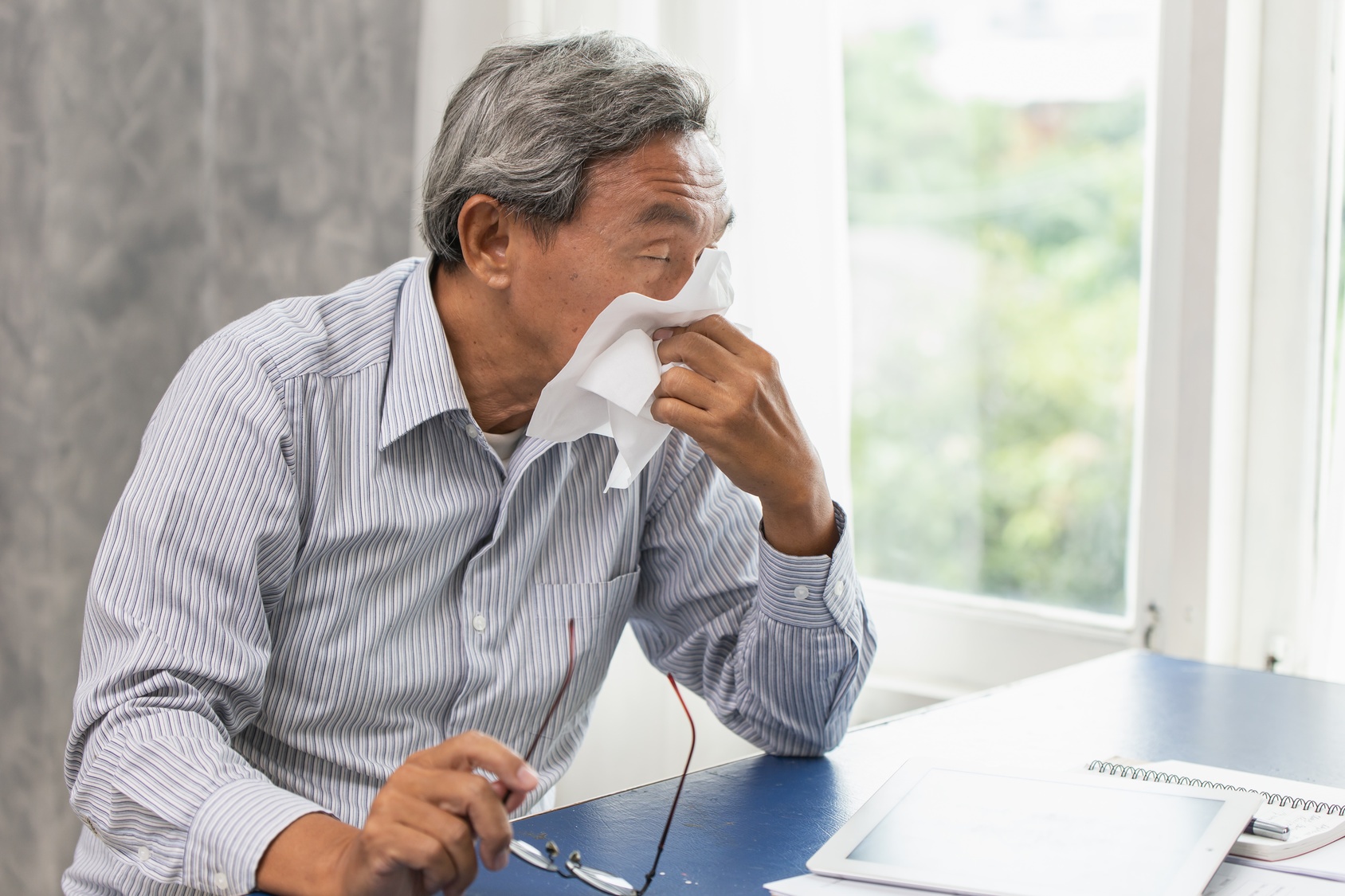While the flu can strike anyone, seniors are at increased risk — both for the disease and serious complications related to it. In fact, people 65 and older have accounted for up to 90 percent of all seasonal flu-related deaths in recent years, as well as up to 70 percent of seasonal flu-related hospitalizations, according to research published in the academic journal, PLOS One.
The good news? Several precautions can help decrease your aging loved one’s chances of getting this extremely contagious and life-threatening respiratory illness. Read on for a roundup of six flu prevention tips for seniors.
1. Get the flu vaccine.
The importance of getting the flu vaccine cannot be overstated. According to the CDC, not only is the vaccine the best way to safeguard people from the flu and its complications, but it’s also especially important for seniors because they are so vulnerable.
Meanwhile, recent research indicates that flu vaccination reduces the number of deaths, ICU admissions, ICU lengths of stay, and overall duration of hospital stays among hospitalized flu patients. And seniors showed the greatest benefits in the study.
Think it’s too late to get the seasonal flu vaccine? Think again. While the vaccine is available each year by the end of October, experts say that vaccinations should continue as long as flu viruses are circulating — which can be into January and even later.
2. Limit exposure to sick people.
Did you know that people with the flu can spread it to others from as much as six feet away? Seniors can increase their odds of staying flu-free by avoiding close contact with people who have the flu and/or flu symptoms. This includes you: If you are sick, keep your distance to avoid getting your aging loved one sick, too.
For another layer of protection, seniors should steer clear of unnecessary travel and crowded places — especially poorly-ventilated ones.
3. Practice good hygiene habits.
Handwashing is a simple yet significant way seniors can protect themselves from germs. Proper handwashing comprises five steps: wetting, lathering, scrubbing (for at least 20 seconds or two rounds of the “Happy Birthday” song), rinsing and drying.
In addition to the front and back of hands, make sure seniors are also cleaning their wrists, between fingers, and under their nails. Perhaps the CDC puts it best in concluding, “Handwashing is a win for everyone, except the germs.”
While soap and water are best, frequent handwashing may not always be possible — especially for mobility-challenged seniors. In this case, hand sanitizer is a helpful alternative.
“Handwashing is a win for everyone, except the germs."
4. Maintain a clean environment.

In addition to bathroom and kitchen counters, door knobs, television remotes, faucets, refrigerator, and dishwasher handles, and light switches are all breeding grounds for germs. Routinely disinfecting living spaces — paying careful attention to these areas — can stop germs before they spread.
And don’t forget to sanitize sponges and rags by running them through the dishwasher, microwaving them for a minute, or soaking them in bleach. Speaking of sanitizing, mobile devices are also germ hotspots. Use rubbing alcohol or disinfecting wipes to clean them without exposing them to water.
5. Eat (and drink) for optimal nutrition.
One of the reasons seniors are more susceptible to the flu is because immune systems weaken with age. Eating a nutrient-rich, balanced diet consisting of whole foods, whole grains, fresh fruit, and vegetables can help bolster immunity in seniors. If you think your aging loved one may be deficient in essential vitamins and minerals, talk to his or her physician about dietary supplementation.
Drinking lots of water can also help ward off the flu by keeping the nose lining moist. Says researcher Dr. David Lewis: “The first line of defense is the mucous membrane in the nose. This acts as a sticky flypaper to trap things like dust, dirt, and bacteria and prevent them from getting to the lungs. If you are dehydrated, the mucous membrane will dry out. When this happens, it is half as effective.”
“The first line of defense is the mucous membrane in the nose. This acts as a sticky flypaper to trap things like dust, dirt, and bacteria and prevent them from getting to the lungs. If you are dehydrated, the mucous membrane will dry out. When this happens, it is half as effective.”
6. Commit to regular exercise.
Exercise is another healthy habit proven to fortify the immune system. Explains Harvard Health: “Regular exercise is one of the pillars of healthy living. It improves cardiovascular health, lowers blood pressure, helps control body weight, and protects against a variety of diseases. But does it help to boost your immune system naturally and keep it healthy? Just like a healthy diet, exercise can contribute to general good health and therefore to a healthy immune system. It may contribute even more directly by promoting good circulation, which allows the cells and substances of the immune system to move through the body freely and do their job efficiently.”
In other words, flu prevention is just one more item to add to the list of reasons why your aging loved one should be moving more.
Keep in mind that even with best practices in place for flu prevention, your aging loved one may still get sick. Seeing a doctor immediately for antiviral drugs can make symptoms milder while reducing the risk of complications. Additionally, plenty of rest, liquids, and even a good old-fashioned serving of homemade chicken soup can further set your aging loved on the road to recovery.













